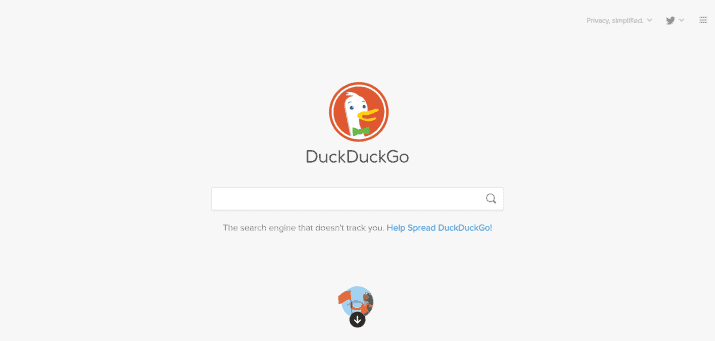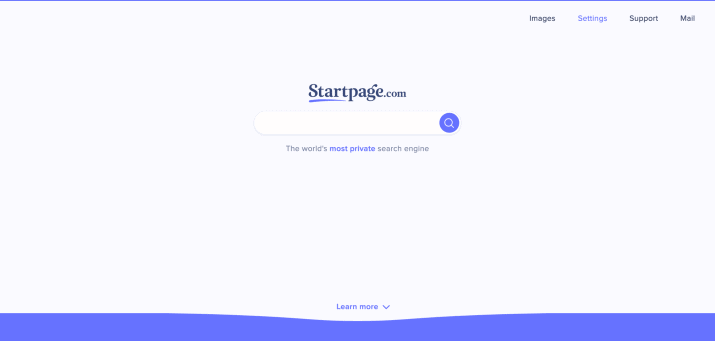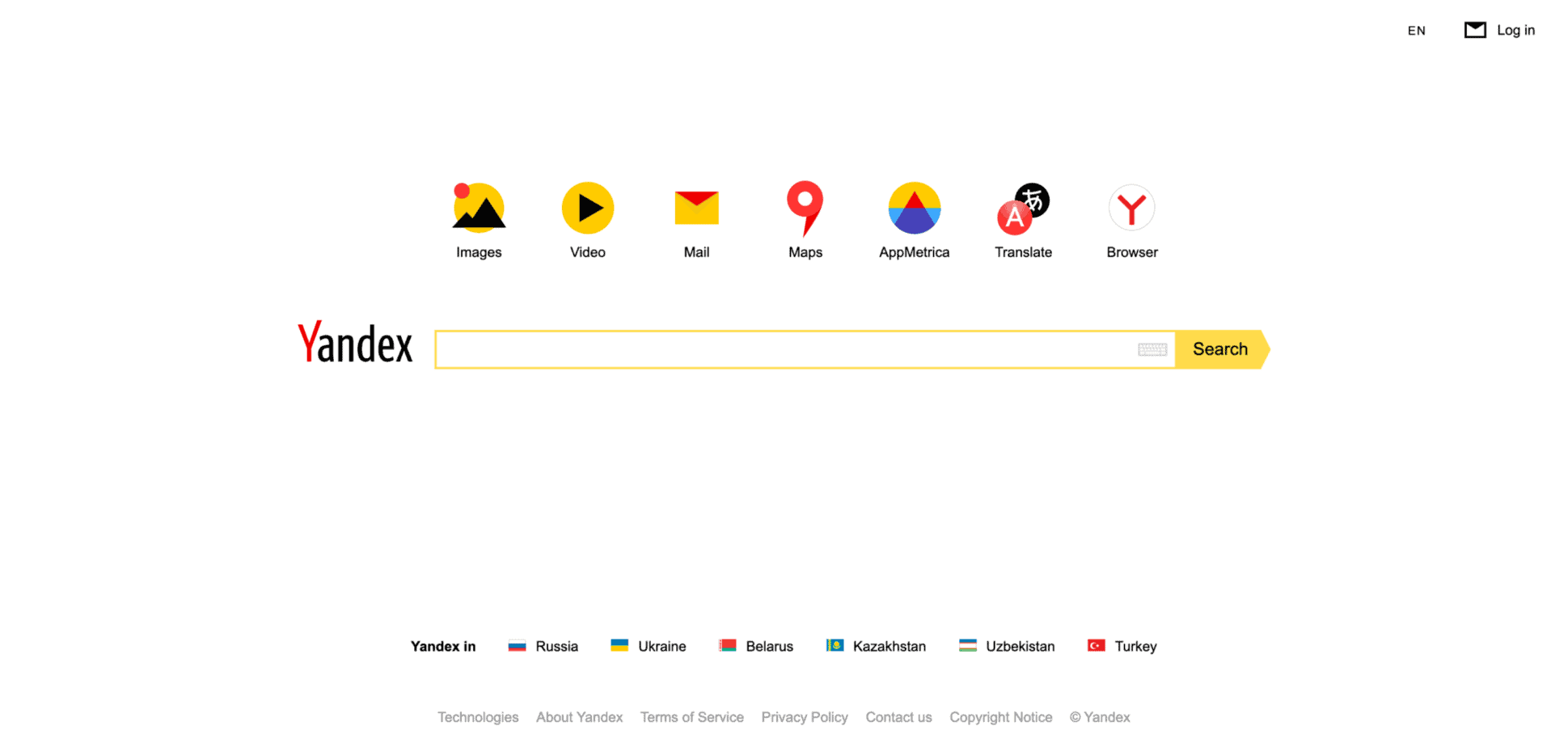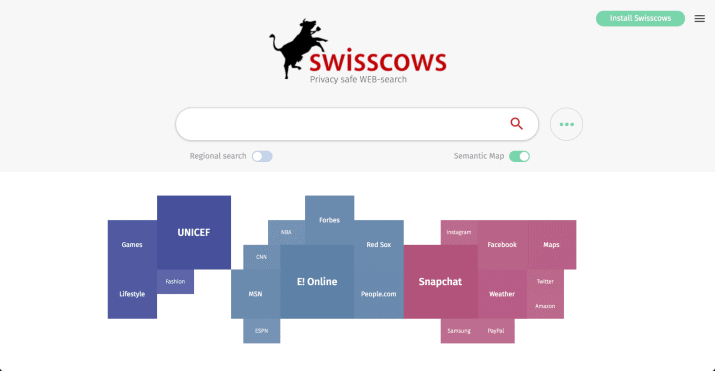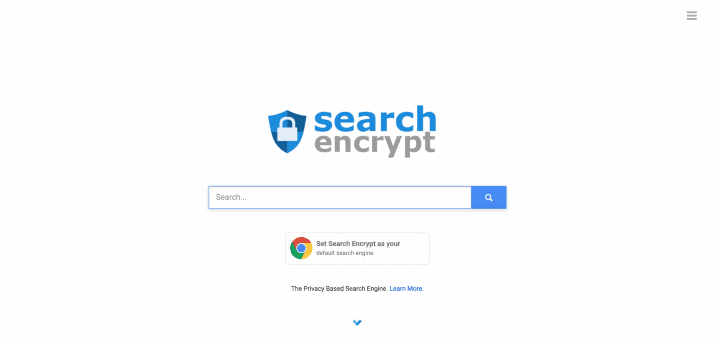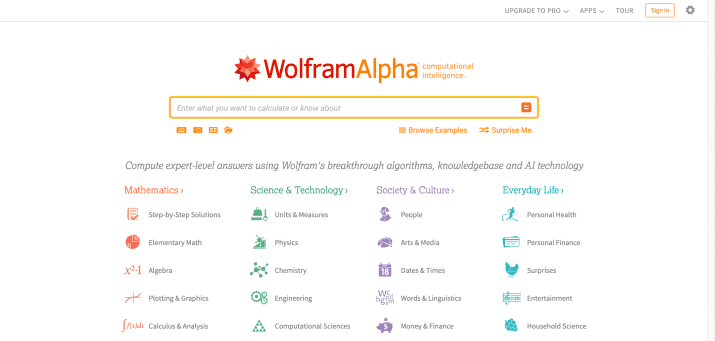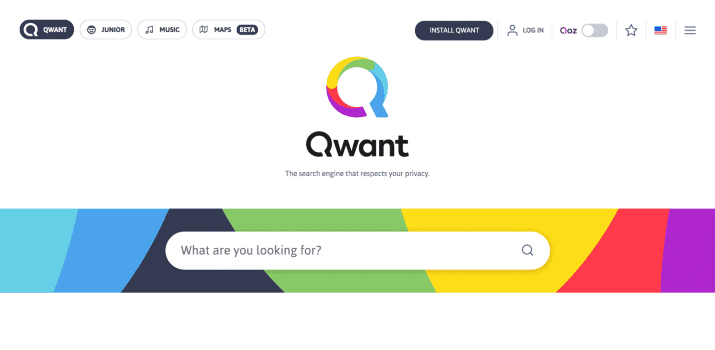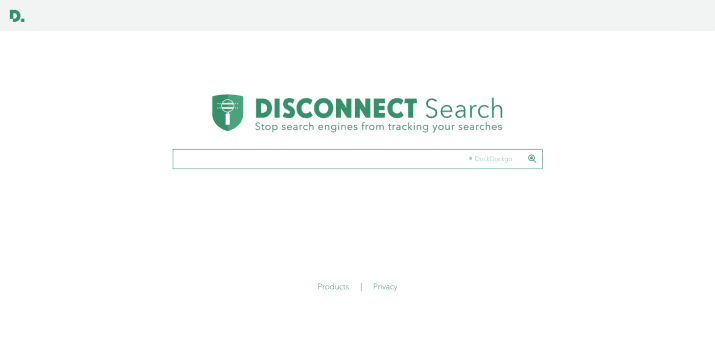At the mention of search engines, Google is usually the first one that comes to mind. It’s no surprise considering that it’s the most popular search engine in existence.
But have you ever found yourself wondering if there are any other search engines out there besides Google? The answer is a resounding yes.
In fact, there are many different search engines that can be used to find what you’re looking for on the internet.
In this post, we’ll explore some of the best search engines other than Google. It will help you with more search options that work.
Best Search Engines Other Than Google
1. Bing
Microsoft’s search engine, Bing, is a pretty solid Google alternative.
In fact, many people believe that it returns more accurate results than its more famous counterpart. And while its user interface isn’t quite as intuitive as Google’s, it’s still pretty easy to use.
One of the things Bing is known for is its visual search feature, which lets you search for images and videos as well as traditional web results.
The video search lets you filter results by length, so you can find something that’s just the right length for what you’re looking for.
You will be able to preview videos from within the search results, and there’s even a built-in video player so you can watch them without having to leave the Bing website.
In addition to its visual search features, Bing also offers some unique perks that you won’t find on Google.
For example, it has a “rewards” program that lets you earn points for doing searches, which you can then redeem for gift cards and other prizes.
It also has a built-in translator that can translate results into over 40 different languages.
Bing also has a webmaster tool that can be handy for website owners and developers, and its mobile app is also pretty decent. The webmaster feature helps in search engine optimization for your website.
Also Read: How To Reverse Image Search On Instagram?
2. Yahoo
Yahoo is another big name in the search engine world. It is third in terms of market share, handling about 3.3% of global searches. It has been around since the early days of the internet and was one of the first search engines available.
Like Bing, it offers a pretty solid experience and accurate results. However, one thing that sets Yahoo apart is its focus on delivering personalized results.
One of the things that Yahoo does differently from Google is that it offers a personal assistant service called “Yahoo Answers”, where people can ask questions and get answers from other users.
This can be useful if you’re looking for a quick answer to a question and don’t want to wade through results from a traditional search.
Yahoo services also feature sports, finance, entertainment, and lifestyle content. So it can be a good option if you’re looking for more than just search results.
Explore: How To Find Someone Free Of Charge Online?
3. DuckDuckGo
If you’re concerned about privacy, then DuckDuckGo is a great search engine alternative for you. It doesn’t track your searches or store your personal information.
This makes it a great choice if you want to keep your online activity completely private. In addition, it also provides some pretty good results.
The search engine was founded in 2008 by Gabriel Weinberg and brings you search results from over 400 sources, including Bing, Yahoo, and Yandex.
The filter bubble is also something that DuckDuckGo doesn’t subject you to. This is when a personalized search engine results page shows you content that it thinks you’ll like based on your past searches.
DuckDuckGo doesn’t do this – it brings you unbiased search results every time.
The search engine doesn’t store your search history, so your past searches can’t be used to influence your future ones.
Your personal information is also safe with DuckDuckGo as the company doesn’t collect or share it.
The search engine is available as a mobile app and as a browser extension.
Check Out: Best Free People Search Websites
4. Startpage
Startpage is a search engine that’s very similar to Google but without personalized results. This means you’ll get unbiased results every time you perform a search.
The search engine was launched in 2006 and is based in the Netherlands. It uses Google’s search results but doesn’t store any information about its users.
Its selling point is its security and privacy features. Startpage doesn’t track your IP and searches to monitor. It also offers a custom proxy service that lets you browse the web anonymously.
Ixquick, which is Startpage’s metasearch engine, was the first search engine to receive the EU’s “Privacy Seal.”
You can also get a custom URL generator that lets you create links that don’t contain any referrer information.
This means that even if someone clicks on the link, they won’t be able to see where it came from.
Startpage is available as a mobile app and as a browser extension.
Explore: Best LoopNet Alternatives
5. Baidu
Baidu is a Chinese search engine that was launched in 2000. It’s the largest one in China and handles the majority of searches there.
This is because Google isn’t available in Mainland China due to the country’s censorship laws.
The search engine language is originally Mandarin but has since been translated into English and other languages. So you can use it even if you don’t speak Chinese.
If you are not in China but need to do research on a topic relating to China, then Baidu is a good option since it will give you results from a Chinese perspective.
Baidu has a few unique features, such as allowing users to search for MP3s and images.
It also has its own web browser called “Baidu Spark Browser”.
The search engine has a number of features, including a maps service, an image search, and a news service.
It also offers a range of services for businesses, such as advertising and web analytics.
Also Read: Best Whitepages Alternatives
6. Yandex
One of the things that people don’t like about Google is that it collects a lot of user data. If you’re looking for an alternative search engine that doesn’t track you, then Yandex is a good option.
The company behind Yandex is based in Moscow and was founded in 1997. Similar to Google, Yandex has a variety of different products and services including a mapping service, an email service, and a browser.
In terms of market shares, Yandex is the largest search engine in Russia. However, it’s also available in other countries and makes the top five list of largest search engines in the world.
The user interface is similar to Google’s and you can even use many of the same features, such as image and video search. It also has a “Privacy” mode that doesn’t track your searches.
Beyond search engine results, Yandex also offers other features that may be useful to you. For example, the “Yandex Market” is a service that lets you compare prices on different products.
They also have a “Yandex Weather” service that tells you the current weather conditions and forecast for your location.
You can use Yandex storage for free to store up to 10GB of files. And if you need more space, they offer paid plans with additional storage.
Explore: Best Anywho Alternatives
7. Ecosia
If you’re looking for an environmentally-friendly search engine, you should try Ecosia. This Berlin-based company donates 80% of its profits to planting trees. It takes only 45 searches to plant one tree.
This search engine offsets its carbon footprint by buying Renewable Energy Certificates and has committed to being powered by 100% renewable energy by the end of 2020.
Ecosia also has a handy Chrome extension that makes it easy to search and plant trees while you browse the internet.
In addition to its goal of being green, Ecosia is also a privacy-focused search engine. It doesn’t collect or sell your data and has been verified by the independent organization Ethical Consumer.
This means that Ecosia is a good choice if you’re looking for an alternative to Google that puts your privacy first.
Its encrypted search option also makes it a good choice if you’re looking for a more secure way to search the web.
Users can also see how many searches they’ve made and how many trees they’ve helped to plant. So it’s really a win-win all around.
Explore: Best Spokeo Alternatives
8. Swisscows
Swisscows is a privacy-focused search engine that does not track its users. It was developed in Switzerland, hence the name. The interface is clean and simple, making it easy to use.
It is powered by Bing but offers additional features such as the ability to search for images and videos, as well as an ad-free experience.
Swisscows does not store any personal information about its users and so is a good choice if you are concerned about your privacy. It is this priority to privacy that distinguishes it from other Google.
The search engine automatically blocks any content that may be harmful to its users, such as malware and phishing websites.
It also screens out sensitive information such as social security numbers and credit card details.
It has an extra layer of security as it has its own firewalls and anti-virus protection. This is unlike what you would find with some other search engines.
Swisscows leverages artificial intelligence for a better search experience.
The search engine is available in over 10 languages, making it a good choice for those who are not comfortable using English.
Check Out: Best US Phone Book Alternatives
9. Search Encrypt
Search Encrypt is a private search engine that offers encrypted searches to keep your information safe. It does not track your searches or store your IP address.
It was created by a team of security and privacy experts from MIT and Harvard.
In some ways, it is like Google, but without tracking. Some of the features it offers include:
- A personal search history that is only stored on your device
- Automatic deletion of your search history
- Securely encrypted searches
- The ability to set a timer to automatically log you out
When you enter a search query, Search Encrypt encrypts it with AES-256 encryption. This ensures that your search terms and browsing history are never stored or shared with anyone.
Unlike with Google, your search terms are not used to target ads at you. Moreover, your search history would expire after a certain period of time set by you.
10. OneSearch
OneSearch is a metasearch engine that was developed by the team at Verizon. It pulls results from multiple search engines, including Google, Yahoo, and Bing, and displays them on a single page.
This can be handy if you’re looking for something specific and want to see what each search engine has to offer.
Before you search, you can also specify which engine you want to use.
To use OneSearch, simply enter your query into the search box and hit enter. The results will then be displayed in a grid, with each engine’s results appearing in its own column.
If you click on a result, you’ll be taken to that website. OneSearch also offers some advanced features, such as the ability to filter results by country or language.
Its results are truly unbiased, which is a rarity these days, as it doesn’t give preferential treatment to any particular engine.
Its encryption feature is also top-notch, ensuring that your searches are private and secure. You can be assured that your personal information is safe with OneSearch.
You will not see any ads while using OneSearch. This is because the developers have decided to forego short-term profits in order to provide users with an uninterrupted and enjoyable experience.
The team is also working on adding more features, such as the ability to save your search history and create custom searches.
Check Out: Best Hunter.io Alternatives
11. Ask
In mid-2010, facing competition from more popular search engines such as Google, the company reinvented itself as a question and answer site.
Now, the majority of Ask.com’s traffic comes from natural search results.
It has become known for its question-and-answer format, more like that of a reference work such as Wikipedia, and also for its “AskEraser” privacy feature.
When you enter a query into Ask.com, the software looks for websites that contain those same keywords. It then ranks those websites by how often they are linked to other websites.
In addition to answers to your questions, the site also displays related results to what you are asking, so you can explore the topic further.
This gives Ask.com an edge over other search engines, which simply display a list of websites that match your keywords.
The retention rate of Ask.com is quite high, with users spending a couple of minutes on the site.
This is largely due to the fact that it provides more than just a search engine; it also offers a variety of other services such as news, weather, and maps.
Check Out: Whitepages vs Yellow Pages
12. WolframAlpha
WolframAlpha is a computational knowledge engine or answer engine invented by Wolfram Research.
It is very different from Google as it provides direct answers to factual questions by extracting the solution from structured data, instead of aggregating a list of search results that probably contains the answer as Google does.
One example of its direct answering ability comes from its extensive mathematical computation abilities, which allow it to directly answer questions such as “What is the surface area of a sphere with radius 5?”
In general, WolframAlpha is used as a knowledge resource that can be used to answer factual queries that would otherwise require extensive computation to answer.
It has several categories of content, including math, statistics, physics, engineering, chemistry, materials science, astronomy, earth science, weather, computer science, linguistics, law, and more.
It further breaks down most of these categories into subcategories.
For example, under the math category, it has arithmetic, algebra, geometry, and more.
Under computer science, it has hardware, software, programming languages, and more.
WolframAlpha also includes data from many sources that are not commonly found on the internet, such as government data sets.
The majority of its revenue comes from selling access to its services to organizations such as universities and research labs.
While WolframAlpha does not generate nearly as much traffic as general search engines such as Google, it has a very high retention rate, with users spending an average of over 10 minutes on the site.
This is likely due to the fact that it provides a unique service that cannot be found elsewhere.
In addition to its unique services, privacy is also a major priority for WolframAlpha.
They state on their website that they “neither sell, rent, trade nor lease your information to third parties”.
This makes it a good choice for those who are concerned about their privacy when searching for information online.
Find out the best alternatives to WolframAlpha here.
13. Qwant
Qwant is a French-based search engine that was founded in 2013.
It is unique in that it does not track its users and it displays no advertising.
This makes it a good choice for those who are concerned about their privacy when using a search engine.
In addition, Qwant has a “safe search” feature that filters out inappropriate results, making it a good choice for families or those who want to avoid explicit content.
It has a user-friendly interface that is similar to Google’s and it also offers results for images, videos, news, and shopping.
It goes further to categorize results based on topic, which can be helpful if you’re looking for specific information.
There’s also a music section that uses AI to create a personalized playlist based on your listening habits.
You can perform a quick search by placing the “&” sign in front of a website to get direct results from that site only.
14. SearX
Unlike Google, SearX is an open-source metasearch engine that you can use without worrying about your privacy being compromised.
Its aim is to provide a decentralized search solution that allows anyone to search without being tracked.
The engine is powered by a number of different search engines including Google, Yahoo, and Bing.
It also pulls in results from a number of other sources such as Wikipedia, NPM, and DuckDuckGo.
You can also customize the search results according to your preferences.
For instance, you can choose to view only results from a certain country or region.
SearX source code is available on GitHub for anyone to review and contribute to.
15. Gibiru
Gibiru is a private search engine that does not track you like Google does, nor does it sell your data.
The engine encrypts your search queries and routes them through its own servers to give you back results from Google.
This means that your ISP or anyone else monitoring your traffic will not be able to see what you are searching for.
Gibiru also claims to bypass censorship and filter bubbles that are often put in place by government agencies and ISPs.
If you download its AnonymoX Firefox extension, you can also browse the internet anonymously. All your searches are automatically routed through Gibiru’s servers, and your IP address is hidden.
Explore: Algolia vs Swiftype
16. Disconnect Search
Disconnect Search is a search engine that does not track you. It does this by routing your searches through its own servers so that your IP address is not passed on to the sites you visit.
There is also a browser extension that allows you to use Disconnect Search without having to go to the website each time you want to search for something.
With this extension, you can block all third-party tracking requests from websites and stop search engines from profiling you.
Unlike Google and other search engines, Disconnect Search does not show you targeted advertisements based on your search history.
Conclusion
There is no doubt that Google is the most popular search engine thanks to its many features and ease of use. However, there are other search engines that offer different features that may be more appealing to you.
Give a few of them a try and see which one works best for your needs. You may be surprised at how much you like using something other than Google.
Our best Google alternative is Bing because it presents itself as a decision engine, designed to make intelligent decisions based on user interactions so that when you search for something, you get the best results possible.
If privacy is your biggest concern, then you should definitely check out DuckDuckGo.

Scott L. Macarthur is a marketing consultant and an online author. He is mostly engaged in providing his expertise to startups and SMBs. He is also an author on TheNextWeb.


